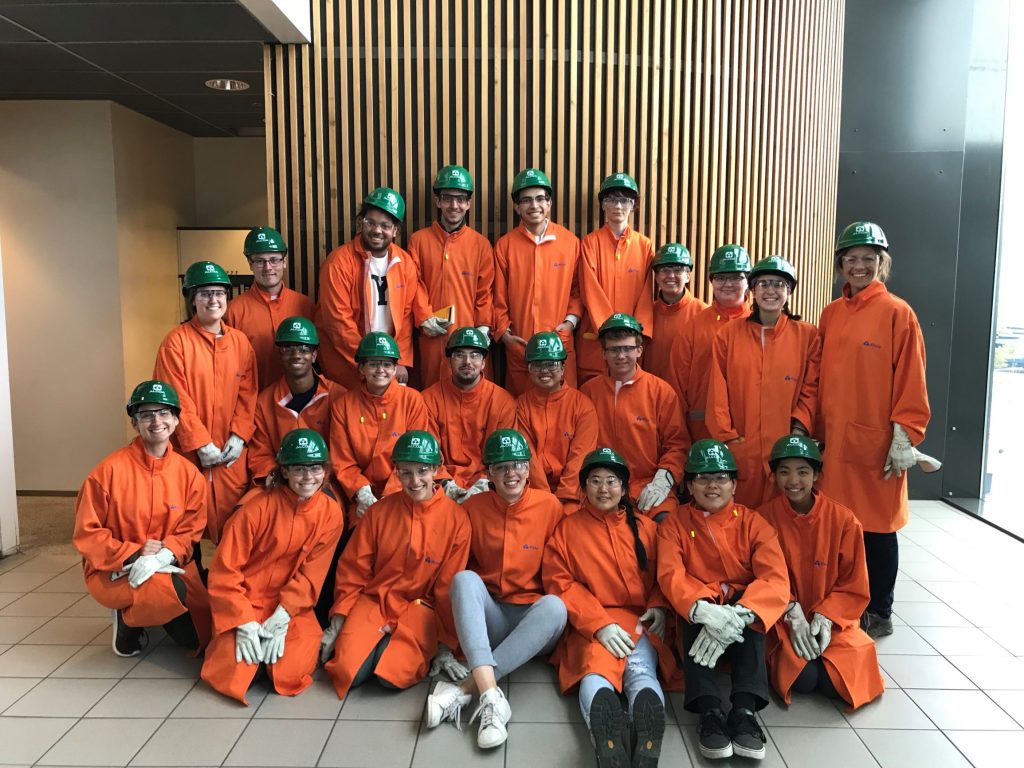Proud to be part of SIT’s first carbon-neutral program
August 8th, 2019 | SIT Study Abroad

By Nash Keyes
Editors note: Nash Keyes studied abroad this summer on the first track of SIT Iceland: Renewable Energy, Technology, and Resource Economics, which is set to become the first SIT Study Abroad program to achieve carbon neutrality by planting 220 trees in the "green scarf" region around the city of Akureyri.
Educational institutions all have a duty to actively mitigate their impacts on climate and the world in general, and SIT is no different. It makes a lot of sense that our program -- which focused on climate and renewable energy, -- was SIT's first program to be carbon neutral. SIT should continue to set this kind of example through all of its programs. I feel lucky to have been a part of this program that is so conscious of its own impact, and very excited that trees will be planted in our name through SIT to offset our trip’s carbon footprint.
The issue of minimizing negative impact of trips is very important, both for study abroad and for service and educational travel in general, and I’m glad that SIT is thinking about this. From what I could see, my SIT program facilitated a respectful and non-exploitative interaction with Iceland, its resources, and its people, and in that way alone created a program that minimized our impact on the country.
... my SIT program facilitated a respectful and non-exploitative interaction with Iceland, its resources, and its people, and in that way alone created a program that minimized our impact on the country.
The method of tree-planting in Akureyri’s “green scarf” to offset our program’s carbon footprint was satisfyingly connected to what we learned about in our program, and was also uniquely local and a contribution to a program that Icelanders had already put in place.
In too many study abroad and service trips, foreign groups, especially American ones, come into a country or region without a lot of respect for local culture, society, and autonomy, and act as if they know better. This direct local engagement felt very fitting as a way to counteract that trend through contributing to a pre-existing, Icelander-led program. This felt especially significant, given that SIT is U.S.-based, since the U.S. and Britain have a history of somewhat forced occupation of the naval base at Keflavik, and since the U.S. has had such an impact on Iceland’s language, culture, and economy. It seems like a good baseline for SIT, as a U.S.-based and affiliated institution, to mitigate its Iceland-related carbon footprint in a way that directly benefits and is led by the people who gave us so much in Iceland.
Iceland hasn’t experienced racialized colonialism and exploitation in the same way that many other countries have, so I didn’t come into the program thinking about my experience there in terms of power dynamics and politics in the way I might have elsewhere. But in thinking about it more carefully, I see carbon footprint mitigation through local projects as one way to work toward more equitable relationships between U.S. groups and other people and landscapes of other countries.
... I see carbon footprint mitigation through local projects as one way to work toward more equitable relationships between U.S. groups and other people and landscapes of other countries.
My experience in Iceland and our opportunity to mitigate our carbon footprint also made me much more educated about and conscious of my energy use, both in Iceland and at home. While in Iceland, I felt that if all the energy I’m using is coming from plentiful, non-polluting renewable sources, I didn’t need to make as big an effort to limit my consumption. Back in the U.S. now, however, I am thinking much more carefully about my energy use and where my energy comes from, especially as I am preparing to move into my first actual apartment where I am directly paying utility bills. I am thinking about measures I can take to minimize the carbon footprint of my apartment this coming year, including buying as much electricity as possible from suppliers who use renewable sources in a much more conscious and educated way than I would have before my study abroad experience in Iceland.
Back in the U.S. now ... I am thinking much more carefully about my energy use and where my energy comes from ...
I understand much better the complexity of the electricity grid and the way power and heat are generated in general, and have a better perspective on how far behind the U.S. really is in terms of renewable energy.
I feel lucky to have been a part of this program that expanded my knowledge base in an engaging, experiential way while minimizing its own contribution to the problems it aims to help us solve. The program gave me a very valuable perspective on energy, society, and environment that I will carry forward through the rest of my life.
Nash Keyes majors in applied mathematics at Yale University's Pauli Murray College. They expect to graduate in 2021.
